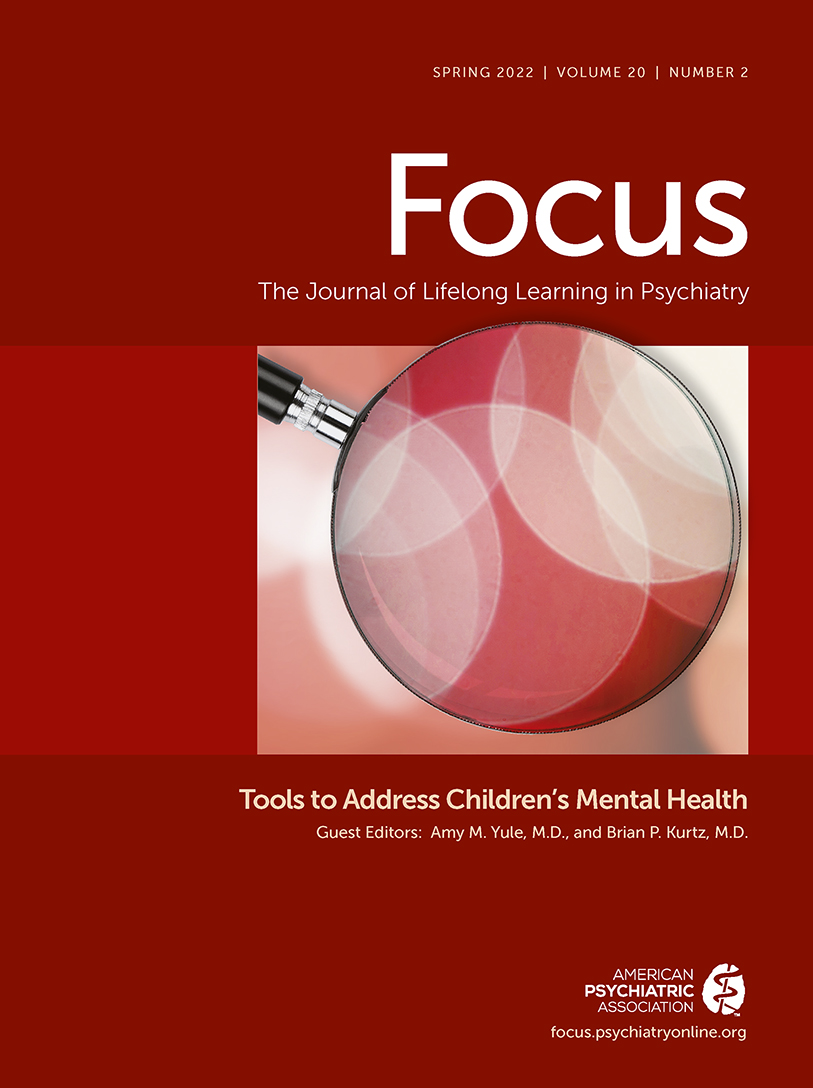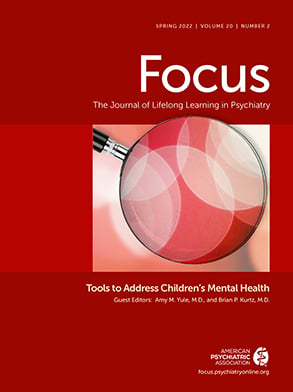The mental health and social consequences of the coronavirus disease 2019 (COVID-19) pandemic have been profound and far-reaching. Almost every fundamental factor that shapes development and resilience in youth, from schooling to parent-child and peer relationships to creative and athletic pursuits, has been upended by the pandemic for many children. This is of great concern since prior to the pandemic, there were already 7.7 million children with a psychiatric disorder in the United States, and only half of them received treatment (
1). With notable stressors during the pandemic, including caregiver death (
2), social isolation, and economic instability, there has been an increase in clinically elevated mental health symptoms among youths. A meta-analysis of 80,879 youths globally during the pandemic found that 25% were experiencing symptoms of depression, and 20% were experiencing symptoms of anxiety (
3). In the United States, there has also been an increase in children in acute crisis. Emergency departments, which were already overwhelmed by youths presenting in crisis, saw a 24% and 31% increase in mental health–related emergency visits among children ages 5–11 years and 12–17 years, respectively, between 2019 and 2020 (
4).
Recognizing the increased prevalence of mental health symptoms and acuity in children, pediatricians, child and adolescent psychiatrists, and children’s hospitals declared a national emergency in children’s mental health in October 2021 and called on policy makers to take specific action to improve access to mental health treatment (
5). The U.S. Surgeon General followed suit soon after, releasing “Protecting Youth Mental Health: The U.S. Surgeon General’s Advisory” in December 2021 to also call attention to this issue and to provide practical guidance on addressing mental health for youths, families, community organizations, government, and others (
6). We hope this issue of
Focus provides knowledge and tools to help prepare the general psychiatrist to address common childhood mental health conditions and acute crises. This issue includes reviews covering pediatric psychopharmacology for depressive and anxiety disorders, child maltreatment, suicide risk in youths, the suicide crisis among Black youths, and family involvement and family-based interventions.
As general psychiatrists know well, the roots of mental illness and mental health most often trace back to childhood (
7). Psychiatrists can have an immediate short- and long-term impact on our nation’s mental health by working with pediatric colleagues to treat children and adolescents with mental health conditions. When a child’s mental health condition is not addressed, it impacts not only the individual child, but also family and peers, other healthcare providers, educators, and the broader community. All of these supports will play an important role in overcoming the barriers to caring for the mental health of youths, which include not only too few providers, but also a lack of equity in how those providers are available to youths with mental health conditions. The general psychiatrist armed with the knowledge and perspective within this issue of
Focus is poised to play a key role in our current crisis through work with individuals and communities.

